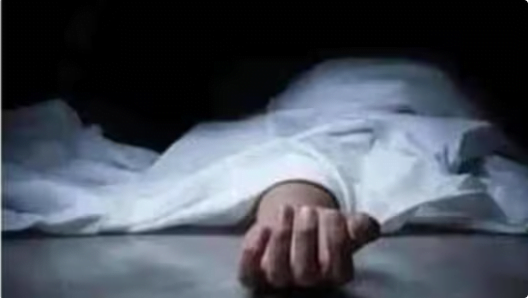Chennai Dark Episode: Tragic Hate Crime Ends in Double Tragedy
The tragic and shocking story of a 21-year-old woman from Chennai unfolds with devastating layers. Her life took a dark turn when her family opposed her marriage to a Dalit man, which ultimately led to her brother killing her husband. Now, two months after that horrific event, the woman has also passed away in a suspected suicide.
The woman, a student pursuing an engineering course, had married a 22-year-old Dalit man in October 2023. Despite their love and desire to be together, their Chennai union faced strong opposition from her family, which belongs to the Vanniyar community—an Other Backward Classes (OBC) caste.
The Tragic Event
On February 25, the woman’s brother, along with four of his aides, killed her husband in Pallikaranai. This tragic event was born out of a hate crime and the caste differences between the woman and her husband. The young woman was left to face the aftermath of this heinous crime and continued living with her in-laws.
However, the trauma proved to be too much for her to bear. Chennai She attempted suicide on April 20 and was rushed to the Rajiv Gandhi Government General Hospital in Chennai, where she succumbed to her injuries on April 22.
Family Opposition
The family strongly opposed the woman’s marriage Chennai due to the inter-caste differences. Their resistance turned deadly when her brother took matters into his own hands and orchestrated the killing of her husband. All five individuals involved in the killing have been arrested and charged with murder under Section 302 of the Indian Penal Code, as well as other relevant sections of the Scheduled Caste and Scheduled Tribe (Prevention of Atrocities) Act.
The Hate Crime
The woman’s brother, alongside his four accomplices, committed the murder Chennai of her husband in a brutal and senseless act of hate. Their disdain for the inter-caste marriage fueled their actions, leading to the tragic loss of life and immense pain for the young woman.
The police have taken strict legal action against the brother and his aides, ensuring they face the full weight of the law. This is a reminder of the severe consequences of hate crimes, particularly those rooted in caste-based discrimination.
The Woman’s Demands
Before her tragic death, the woman sought justice for her husband’s murder. She demanded strict action against other members of her family, including her parents, who she Chennai believed had abetted the killing. The senior police officer mentioned that the woman had already provided a statement indicating her belief that her brother acted on her parents’ instructions.
The police are investigating this aspect and will be recording statements from the couple’s parents. The woman’s demand for justice was clear, and it remains a crucial part of the ongoing investigation.
Conclusion
The heartbreaking story of the Chennai woman highlights the grave impact of hate crimes and the deep-seated issues of caste-based violence. It serves as a stark reminder of the challenges faced by inter-caste couples and the dangers they may encounter. The loss of both the woman and her husband is a tragedy that underscores the urgent need for change and action against caste-based discrimination and violence.
Efforts must be made to support victims of hate crimes and ensure that justice is served swiftly and effectively. The hope is that this tragic event will raise awareness and inspire changes in society to prevent similar occurrences in the future.
Bengaluru Woman Stabbed, Mother Kills Attacker 2024
FAQs
1. What is an inter-caste marriage? An inter-caste marriage is a union between individuals who belong to different social castes, often facing societal challenges due to traditional views on caste differences.
2. How does the Indian legal system handle hate crimes? The Indian legal system addresses hate crimes through various legal frameworks, including the Indian Penal Code and the Scheduled Caste and Scheduled Tribe (Prevention of Atrocities) Act. These laws aim to protect victims and provide appropriate punishment for perpetrators.
3. What are the challenges faced by inter-caste couples? Inter-caste couples may face social ostracization, opposition from family, and sometimes even violence due to deeply ingrained beliefs in the caste system.
4. What support is available for victims of hate crimes? Victims of hate crimes can seek support from legal authorities, non-governmental organizations, and community groups that provide counseling, legal assistance, and other forms of aid.
5. What measures can be taken to prevent such tragedies? Preventative measures include promoting education and awareness about the harmful effects of caste-based discrimination, strengthening legal protections for inter-caste couples, and fostering a culture of tolerance and acceptance in society.
